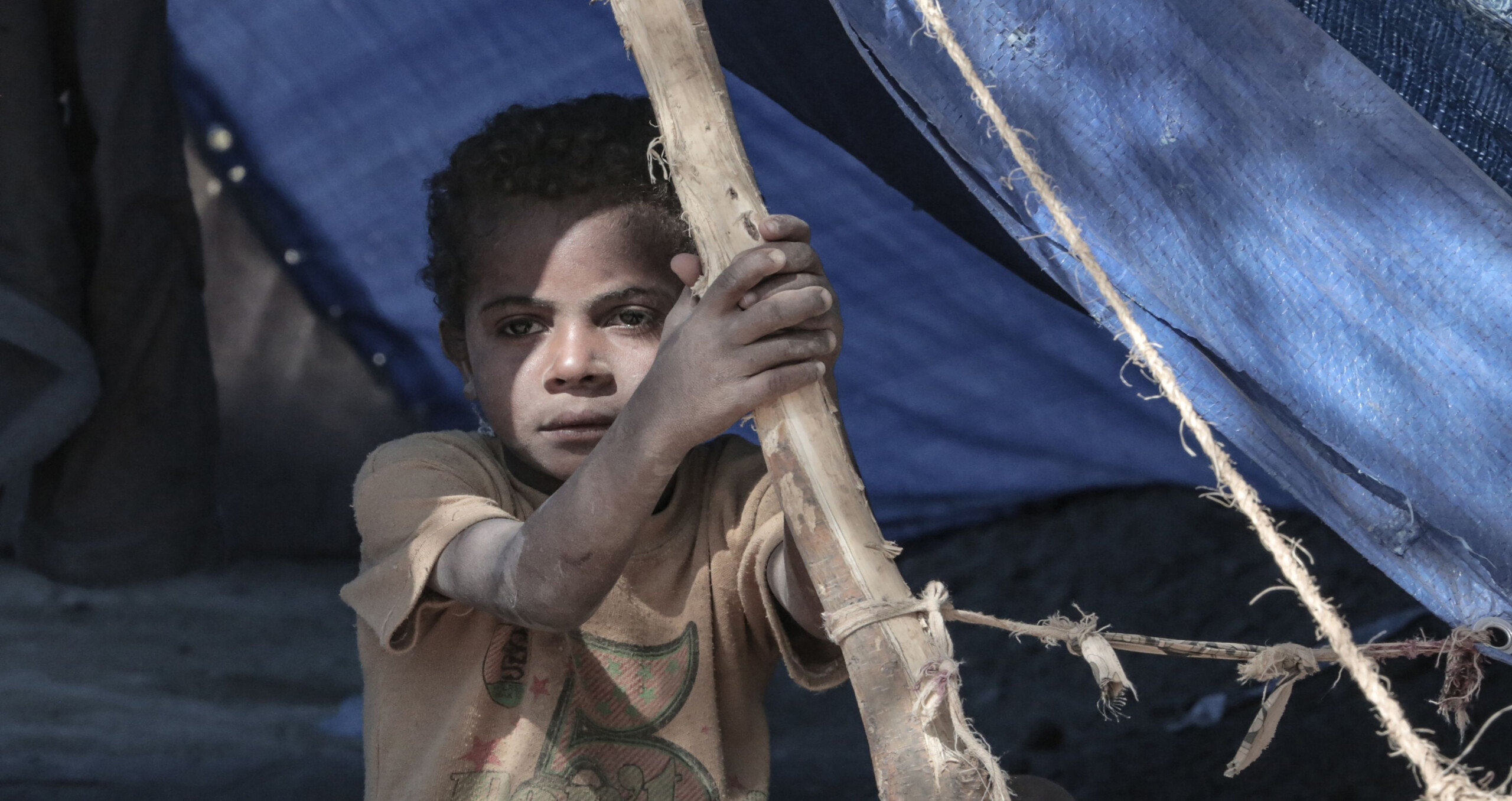Famine destabilizes communities and fuels terrorism

Yemeni child, poor and hungry due to ongoing conflict in the country, is on the verge of collapse. Photo by Akramalrasny (Shutterstock, 2021).
Famine destabilizes communities and fuels terrorism
To thrive, humans need to peace and equality. Moreover, they should not live in fear. These three components, along with the eradication of hunger and poverty, are crucial if we are to achieve the Sustainable Development Goals accepted by all nations. In the fight against hunger, it can also help to reduce and even avoid conflict (Mustaquim, 2016). Peace and food security also strengthen each other in a reciprocal way. Action against the experience of hunger has produced various proofs of the bilateral relationship between hunger and conflict in about 50 countries around the world. On one hand, wars disrupt markets and livelihoods and produce large population displacements, creating a high risk of food insecurity; on another, food insecurity and competition for natural resources or food has been the cause of food insecurity (Barrett, 2010).
Women’s role
The role and status of women is important to the way in which conflicts affect food security and how long-term peacebuilding is enabled by food security. Women are primarily responsible for food security and nutrition within the household in most rural and agricultural settings. In many developing countries, they often supply to the agricultural labor in addition to buying food and cooking although they, typically, find it more difficult than men to earn a living as farmers or farm workers (they often do not have the same rights as men to own or manage property, purchase products, obtain credit, or receive education)(Bellmare, 2011). These constraints appear to be compounded during civil war and conflict when more men, who typically assume a variety of roles, are absent as they participate in front-line conflict, and women must take on the burden of finding alternative livelihoods in the meantime (Bellmare, 2011).
Experience and evidence suggest that women are more likely to spend their income on food, healthcare, and education than men. Thus, as well as being the drivers of post-conflict recovery, they are crucial to family survival during conflict. When conflicts are over, as well as in peacebuilding, women will contribute significantly to enhancing household resilience. For this purpose, it is important to promote the economic empowerment of women, their right to access and use resources, and their involvement in decision-making in the management of natural resources (Bellmare, 2011).
Access to education
The best tool against hunger and malnutrition is education. In underdeveloped countries, it is particularly potent. Training means better jobs and greater access to food and wages. In addition, several nations have food-for-education systems where free food is offered for students to come to school. In the United States, this can sound like a basic concept, but in many underdeveloped nations, it is lifesaving (FitzGibbon & Hennessy, 2003).
When attempting to address hunger, high birth-rates also pose a challenge. Many individuals may not have sexual education or do not have access to contraception, when we know that access to contraception allows for family planning and economic freedom (FitzGibbon & Hennessy, 2003).

Article by
Fiona Joshva

Categories


